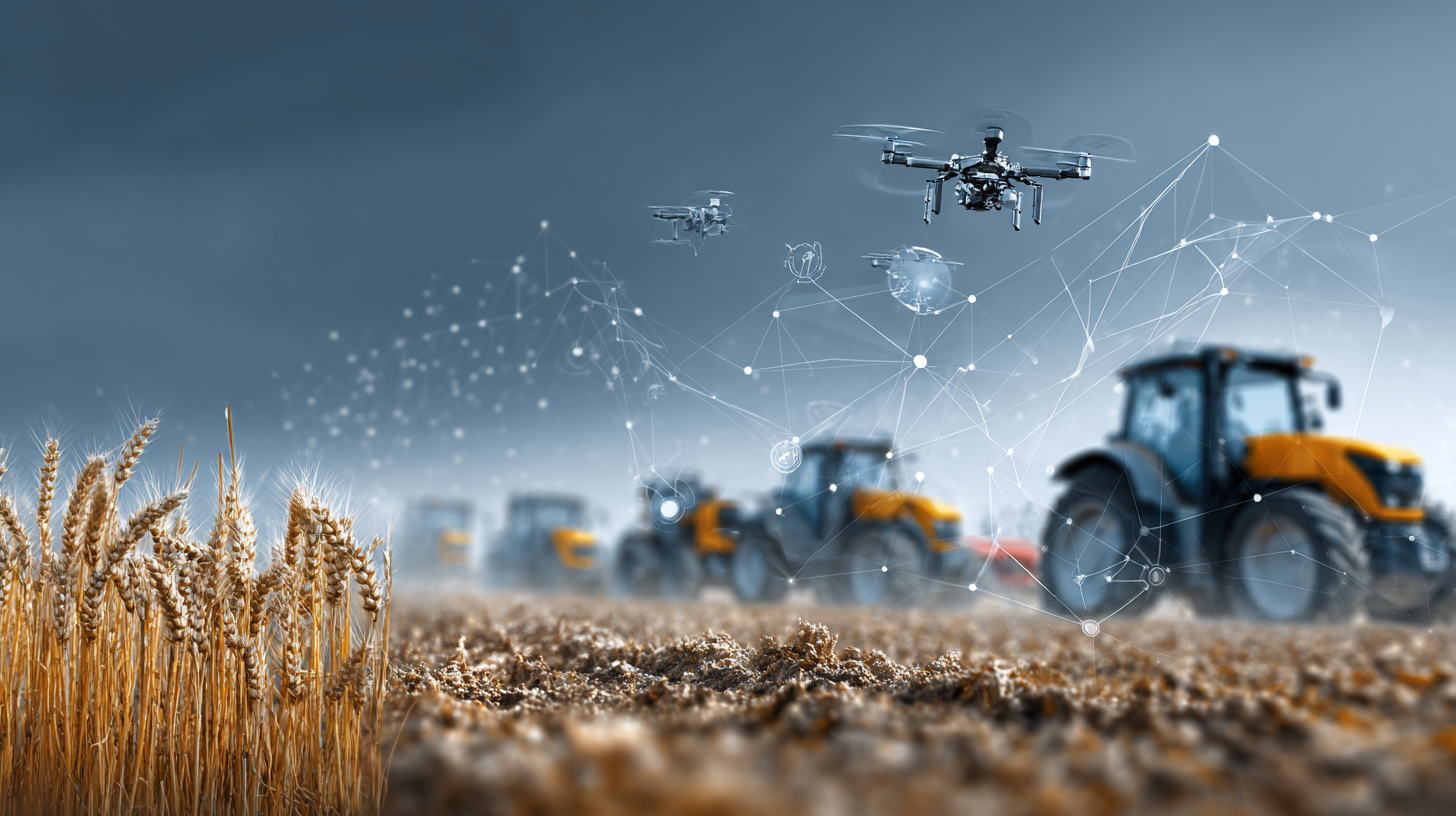
Artificial Intelligence (AI) is revolutionizing various industries, and agriculture and food production are no exceptions. If you’re curious about how AI might influence the future of farming and help feed a growing global population while addressing sustainability challenges, you’re in the right place. As you journey through this article, you will uncover the fascinating ways AI is being integrated into agricultural practices, enhancing efficiency, and improving overall productivity. Let’s get started!
Understanding AI: A Brief Overview
Before diving into its applications in agriculture, it’s essential to understand what AI truly entails. At its core, AI refers to the capability of machines to perform tasks that typically require human intelligence. This includes things like learning, reasoning, problem-solving, and even understanding natural language. As these technologies have advanced, their potential to transform various sectors has become increasingly apparent.
In agriculture, AI’s ability to analyze vast amounts of data makes it a powerful ally for farmers and food producers. By leveraging AI, you can gain insights that allow you to make informed decisions that can significantly impact your farming efficiency, crop yield, and resource management. Whether you’re a small-scale farmer or involved in industrial production, understanding AI can open doors to optimizing your operations.
The Need for Innovation in Agriculture
As global populations continue to surge, the pressure on food production systems has never been greater. Farmers like you are facing multiple challenges: climate change, soil depletion, water scarcity, and an increasing demand for sustainable practices. In this environment, traditional methods may no longer suffice. Therefore, the incorporation of innovative technologies like AI is not just a trend; it’s a necessity.
AI tools can help you optimize planting schedules, predict pest infestations, and monitor crop health. These technologies are designed to provide solutions that allow you to produce more with less, thus ensuring that you contribute positively to the world’s food security while being mindful of the environment. This balance is crucial in today’s landscape where sustainability is no longer optional.
AI Applications in Agriculture
Precision Agriculture: A Game Changer
One of the most significant impacts AI has had in agriculture is the advancement of precision farming. This approach leverages data collected from various sources—like satellite imagery, weather forecasts, and soil sensors—to create detailed profiles for crops. Imagine being able to predict the exact needs of your crops based on real-time data. Sounds great, right?
With precision agriculture, technologies such as drones and remote sensing are employed to monitor crop health. This means you can identify areas that require attention, enabling targeted interventions that can lead to improved yields and reduced waste. You’ll find that such advancements allow for more precise resource allocation—whether it’s water, fertilizers, or pesticides—ensuring that your farming practices are not only efficient but also environmentally friendly.
Predictive Analytics for Farm Management
The use of predictive analytics powered by AI is increasingly becoming a cornerstone of effective farm management. By analyzing historical data alongside current trends, AI models can forecast weather patterns, assess soil health, and predict pest outbreaks. The result? You are equipped with actionable insights that can guide your planting decisions and resource management.
Imagine receiving alerts on potential pest problems weeks before they occur. This isn’t just a way to save crops; it’s about being proactive rather than reactive. These systems enable you to optimize yield while minimizing economic losses, ensuring your farm remains profitable even when faced with uncertainties.
Automating Routine Tasks
Automation is another exciting application of AI in agriculture. With technologies like robotics and machine learning, you can streamline routine tasks related to planting, watering, and harvesting. This not only saves time but also minimizes human error. As you adopt automation, you can also focus on more strategic decisions that can help your farm thrive in an increasingly competitive landscape.
For instance, autonomous tractors equipped with AI can carry out plowing, seeding, and even weed management with great precision. This frees up time for you and your team, allowing you to engage in higher-level planning and strategy rather than day-to-day operational tasks.
The Role of AI in Crop Monitoring
Real-Time Monitoring with IoT
Internet of Things (IoT) devices are revolutionizing crop monitoring by providing real-time data regarding your fields. Sensors that monitor soil moisture levels, temperature, and nutrient content can be paired with AI to offer tailored insights for your crops. These technologies allow you to make data-driven decisions that enhance crop performance.
By employing IoT in your farming practices, you can gain access to a wealth of information that helps you respond to your crops’ changing needs. You can ensure that your plants receive optimum conditions for growth, thereby increasing yields and promoting sustainability.
Camera Technology and Image Recognition
Another fascinating use of AI in agriculture is camera technology combined with image recognition. AI algorithms can analyze images taken by drones or stationary cameras to assess crop health, identify diseases, and even spot specific nutrient deficiencies. This capability allows you to quickly and accurately evaluate the condition of your fields without having to walk through every row of crops.
By identifying issues early on through image analysis, you can take corrective actions that can prevent significant losses. This use of technology embodies the integration of AI into agriculture, making it an essential tool for modern farming.
Enhancing Food Production through AI
Supply Chain Optimization
AI’s impact extends beyond the farms themselves. In food production, AI plays a vital role in optimizing supply chains. From forecasting demand to managing logistics, AI systems can analyze patterns and trends to streamline operations. By utilizing these insights, producers like you can reduce waste and improve overall efficiency, ensuring that resources are allocated effectively.
Imagine knowing exactly how much produce to harvest and when to have it shipped to market. AI systems can analyze consumer behavior and market conditions to give you such insights, drastically cutting down on overproduction and spoilage.
Quality Control in Food Production
Another vital aspect of food production where AI shines is in quality control. Machine learning algorithms can be designed to analyze product quality based on set parameters, allowing for automated inspection processes. This means faster decisions on product quality, leading to superior final products.
By implementing AI-driven quality control measures, you can enhance product consistency and ensure that your food production operates at optimal standards. This improves consumer satisfaction and can lead to a more robust reputation in the marketplace.
Ethical Considerations and Governance Challenges
Navigating AI Ethics in Agriculture
While the potential of AI in agriculture is vast, ethical considerations cannot be overlooked. As you explore AI technologies, it’s crucial to consider their implications on employment, data privacy, and sustainability. The automation of certain tasks could lead to job displacement, and it’s important that the industry addresses these challenges proactively.
Furthermore, data privacy has become an important conversation as the agriculture sector increasingly relies on data-driven insights. Ensuring that data collection and usage complies with regulations is paramount. Emphasizing ethical practices in deploying AI technologies will help maintain trust and integrity in the industry.
Regulatory Awareness and Governance Frameworks
As AI technologies become more prevalent in agriculture, understanding regulatory frameworks and governance structures is vital. Different regions have various regulations concerning AI implementation, data usage, and environmental sustainability. Staying informed about these regulations ensures that you can navigate the complexities of deploying AI effectively and ethically.
Incorporating AI into agriculture means more than just embracing technology; it’s about understanding the framework within which that technology operates. Being aware of the regulations governing AI can help you navigate potential challenges and seize opportunities without running afoul of the law.
The Future of AI in Agriculture
Continuous Innovation and Emerging Trends
The future of AI in agriculture is promising, evolving alongside continuous technological advancements. Innovations such as blockchain for traceability in food supply chains, advanced robotics for precision agriculture, and enhanced machine learning algorithms to analyze livestock health are in development. As these technologies mature, you’ll find even more ways to optimize your farming practices and respond to global challenges effectively.
By embracing innovation, you put yourself in a position to lead the way in sustainable food production. Continuous improvement and adaptation will allow your agricultural practices to remain relevant and effective in an ever-changing market.
Collaborating with Tech-Driven Startups
As AI begins to permeate agriculture, collaboration with tech startups could be among the most beneficial strategies for farmers. These startups often focus on niche problems within the agriculture sector and have developed new, often innovative solutions. By partnering with them, you can access cutting-edge technology and tailored solutions that fit your unique needs.
Within this collaborative ecosystem, you can share insights, provide feedback, and refine these technological solutions to gain maximum benefit. Not only does this foster innovation, but it also builds a community focused on making agriculture more efficient and sustainable.
Conclusion: Embracing the Future of Farming
Navigating the world of AI in agriculture and food production is an exciting journey that feels more like a partnership between technology and tradition. You stand on the threshold of an era where data and innovative solutions can redefine how we approach farming. By adopting AI tools and strategies, you can enhance productivity, optimize resources, and create sustainable practices that benefit not only you but also the world at large.
As you dive deeper into the world of AI, remember that it’s not just about technology; it’s about creating a more efficient, ethical, and sustainable agricultural system. Embrace the opportunities for learning and experimentation, and don’t shy away from asking questions or seeking help—this journey is one where collaboration and community will drive success.
